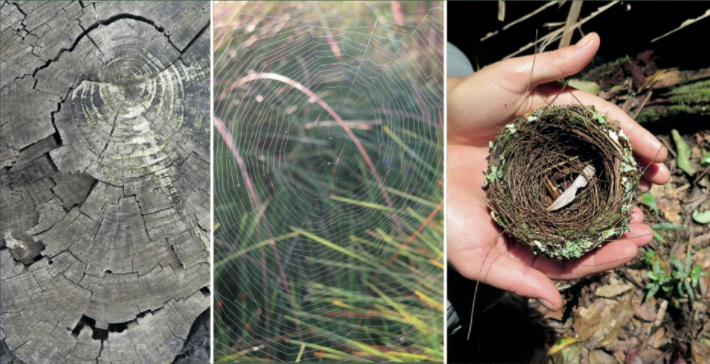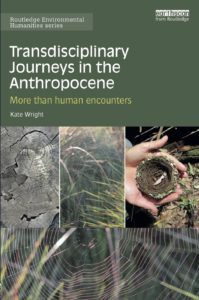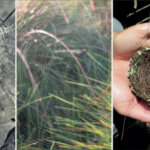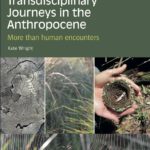
08 Feb New Book: Transdisciplinary Journeys in the Anthropocene
 Transdisciplinary Journeys in the Anthropocene: More than human encounters is a new book published by the Routledge Environmental Humanities Series.
Transdisciplinary Journeys in the Anthropocene: More than human encounters is a new book published by the Routledge Environmental Humanities Series.
“Storied places and companions infuse this deeply moving book of earthly encounters. This is not travel writing in any conventional sense, but home writing attuned to the bumptious motions of living and dying together of diverse human and nonhuman peoples. These are stories that can nurture response-abilities in our urgent times.”
– Donna Haraway, University of California
“This book is a major contribution to the emerging field of the Environmental Humanities. It is a field founded on the idea that knowledge is forged on troubling journeys, not just applied to problems by masterful humans in order to extract solutions. Wright has invented a kind of subjectivity, with both a mode of knowledge composition, and a tone, that are crafted in interspecies relations. The Environmental Humanities are here relaunched on a new journey, generating hope through generous thought in a spirit of trust.”
Stephen Muecke, University of New South Wales
“Wright’s study is intimate and moving, a deeply personal account of her love for one particular place under the sun, even as she engages in a tough-minded, critical rethinking of her entanglement in a history permeated with genocidal and ecocidal legacies. We need a lot more studies like this one.”
James Hatley, Salisbury University, Maryland.
“Wright exemplifies the kind of imaginative intellectual thinking that we need right now to live in a world that depends upon relationality. Sure this book will make you think differently but it will also make you feel very, very connected!”
Katrina Schlunke, University of Sydney
—
Transdisciplinary Journeys in the Anthropocene offers a new perspective on international environmental scholarship, focusing on emotional and affective entanglements between human and nonhuman lives to reveal fresh connections between global issues of climate change, species extinction and colonisation. Combining the rhythm of road travel, interviews with local Aboriginal Elders, and autobiographical storytelling, the book develops a new form of nature writing informed by concepts from posthumanism and the environmental humanities. It also highlights connections between the studied area and the global environment, drawing conceptual links between the auto-ethnographic accounts and international issues.
This book will be of great interest to scholars and postgraduates in environmental philosophy, cultural studies, postcolonial theory, Australian studies, anthropology, literary and place studies, ecocriticism, history and animal studies. Transdisciplinary Journeys in the Anthropocene may also be beneficial to studies in nature writing, ecocriticism, and environmental literature. postcolonial studies and Australian studies.





No Comments